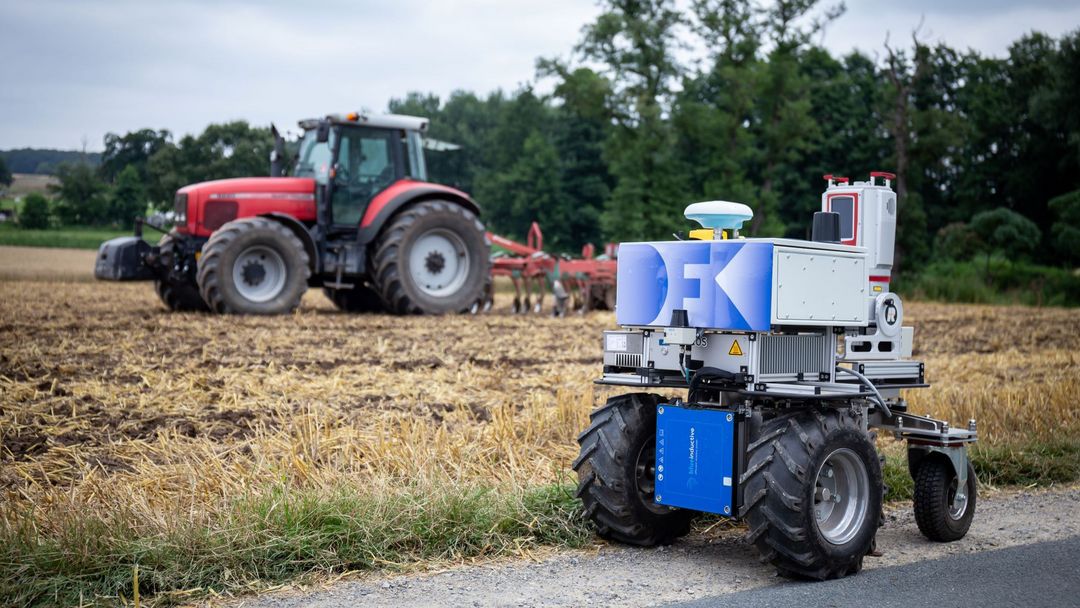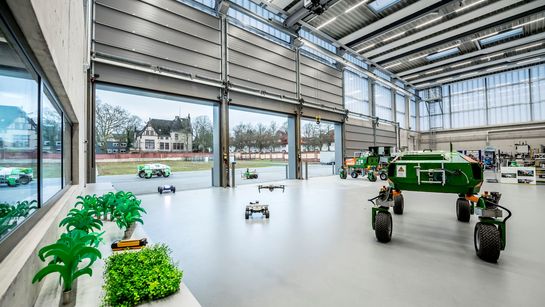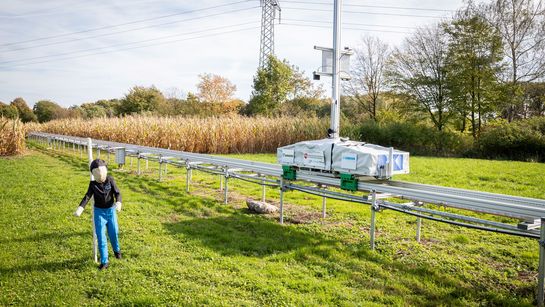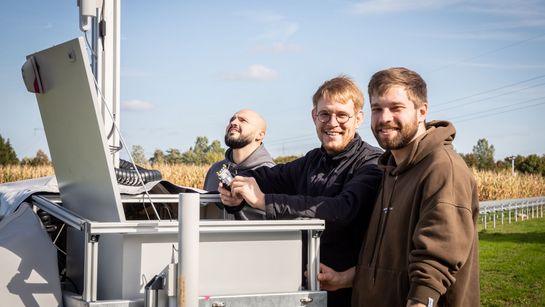Fog in the lowlands of northern Germany or slopes in the vineyards of Trentino challenge autonomous helpers in agriculture in different ways. Various questions need to be answered before such a technology can be used for the respective applications. From now on, these questions will be addressed in Germany, Italy and France in the so-called "Test and Experimentation Facilities for the Agri-Food Domain". With the Europe-wide funding initiative agrifoodTEF, the European Union (EU) and participating member states are providing leading institutions with up to 50 million euros over the next five years to operate these facilities. In addition to the three countries with funding of up to 10 million euros each, Austria, Poland, Sweden and Belgium are participating with a funding volume of up to 5 million euros each. In Germany, the project is supported by the Federal Ministry of Food and Agriculture (BMEL).
Since January 1, 2023, each of the countries has been addressing a topic related to agriculture and technology. Within this scope, they are building up the infrastructure needed to develop functional products: consulting, datasets, software, hardware and machinery, reference implementations for certification, and experimental space in institutes and on farms.
From the laboratory to the field
"The basics have been widely explored. In agrifoodTEF we are focusing on the last important step in the transfer of technology towards AI-based agri-food technology in practice. Machines and their components can be tested and hardened with us in the real world, in the field, with everything that they are exposed to there. I am pleased that the DFKI is one of the German partners in agrifoodTEF. This way, we are strengthening the development of digitalised agricultural technology and agricultural robotics throughout Europe," explains Prof. Dr Joachim Hertzberg, head of the Plan-based Robot Control research department at the German Research Center for Artificial Intelligence (DFKI) in Lower Saxony.
Companies and researchers can approach the three Osnabrück partners with their own ideas and design the environments that suit them or draw on existing infrastructure in Osnabrück. In an ongoing project, for example, the DFKI and the Osnabrück University of Applied Sciences are investigating how autonomous agricultural machines can reliably sense their surroundings. For this purpose, they have set up a test field on an estate. With a rail system, a moving carrier and test dummies in a maize field, researchers are looking for the best sensor configuration and are testing the quality of AI algorithms. Such a setup can serve as a benchmark for testing other systems.
The Agro-Technicum is located at the University of Applied Sciences. It is a hall of more than 500 square metres with a large laboratory area and an outdoor test field. Within two minutes, agricultural machinery and agricultural robots can be driven outside to test them under realistic conditions. Long-term trials of autonomous systems are also possible. Prof. Dr. Stefan Stiene from the Faculty of Engineering and Computer Science: "In the past years, due to the good cooperation between the University of Applied Sciences, DFKI, Agrotech Valley Forum and the State of Lower Saxony, first-class conditions for working on intelligent agricultural systems have been created here in Osnabrück. The fact that our research results in real products that bring real benefits to farmers has always been a big focus. Now we'll expand the existing infrastructure and get even more opportunities to transfer AI and robotics into applications."
Stepping stone for the industry
The demand in the industry for AI and robotics solutions for agriculture and food is high, explains Dr Henning Müller. He is chairman of Agrotech Valley Forum e.V., a network that brings together agricultural technology SMEs in the region between Oldenburg and Münster: "Manufacturers of agricultural systems technology want to start and can do that soon. We have already received first enquiries for using the agrifoodTEF offer. These companies are very successful in what they are doing. At the same time, they also need future success in the new topics of sensor systems, AI and robotics. They need to offer machines and services that are sustainable, functionally reliable, efficient and cost-effective." Without AI in their products, it would become increasingly difficult in the future to meet the many demands that customers, society and politics, for example in the form of the EU Green Deal, place on them. "Interest in AI will also increase in animal production and food processing. agrifoodTEF facilitates access to the necessary data and expertise and can thus help to improve AI-supported agricultural technology in Germany and Europe or allow new ones to emerge. "
Today, February 01, 2023, the first meeting of all European partners takes place in Trento, Italy.
Website agrifoodTEF: https://www.agrifoodtef.eu/




